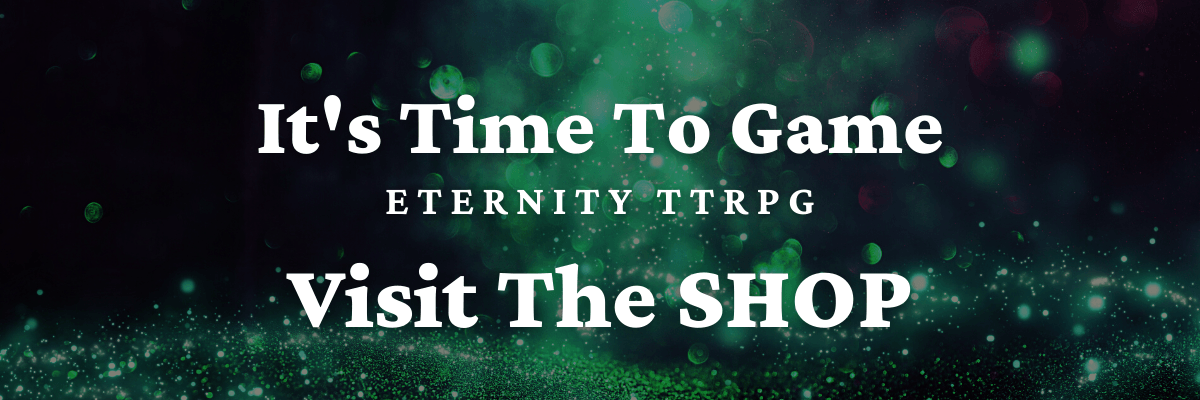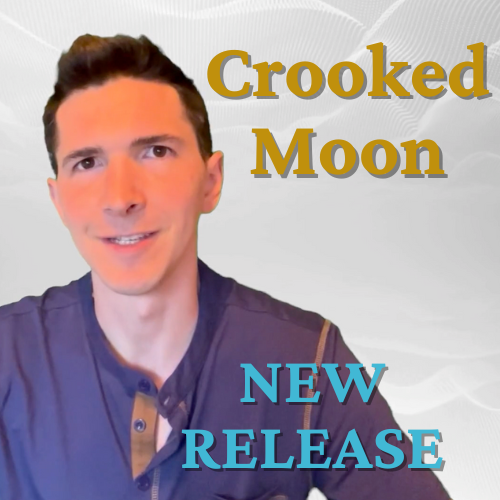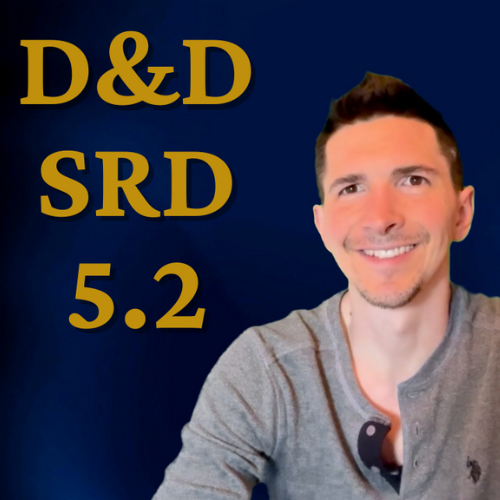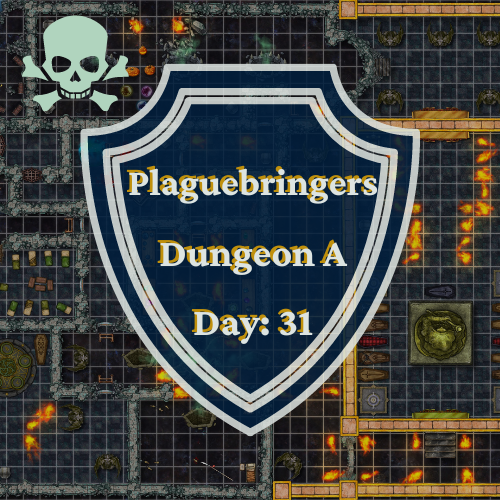Home > TTRPG Reviews
Warhammer Fantasy Roleplay
This Warhammer Fantasy Roleplay review is part of my “Best Tabletop RPGs of All Time” article. If you want to check out more TTRPGs and see how other top-tier tabletop RPGs are ranked, visit that page.
My Review – 79 / 100
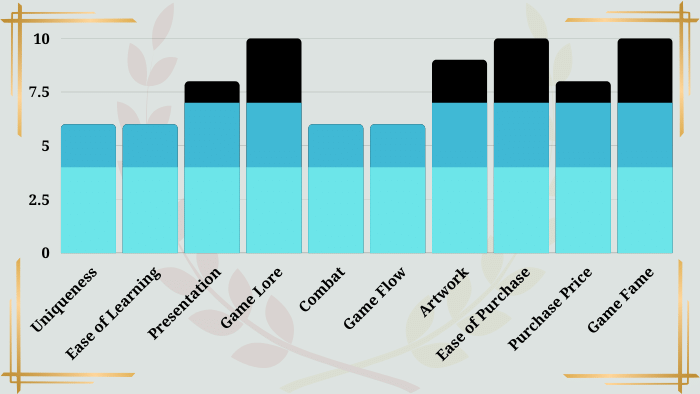
I want to start this article by saying that I really do like Warhammer Fantasy Roleplay. It’s a dynamic game, true to TTRPG‘s roots with games like original Dungeons and Dragons, and it’s a downright fun game to play.
It’s also based on Warhammer – the tabletop war game that has spawned endless novels, video games, and collectibles.
That being said, I do have criticisms of specifically Warhammer Fantasy Roleplay. Just keep in mind while reading this review that Warhammer Fantasy Roleplay is still #7 in my top tabletop RPGs of all time list, and still comes in at a strong 79/100.
A Few Downsides
At first glance, Warhammer Fantasy Roleplay is an intimidating game. It’s a huge rulebook (over 500 pages) full of tons of details regarding every imaginable situation. There are also complexities when it comes to numbers and math that makes the game needlessly confusing.
For example: when initially reading through this game, when it said that a race, career, or magic would give me +5% to a skill or talent, I assumed that I had to multiply my base value by 105%. Which sounds horrible. Like, horrible enough to quit right there. Later, I realized that what the game really meant – since Warhammer uses a percentile dice system – was that I should simply add +5 to my score.
So, the game is simpler than I’d originally thought when just starting out. However, because of the confusing elements of the core rulebook (and I wasn’t the only one confused, believe me), I’m keeping my scores as they are.
If not for the confusion that this game tends to produce, it could be ranked as high as #5 on the list. For the right player, Warhammer could be an amazing game.
Uniqueness of Warhammer Fantasy Roleplay: (6/10)
Warhammer Fantasy Roleplay is a class based RPG. When building your character, you give your character gets a “Career,” which is like your character’s “Class” (wizard, fighter, etc.) in other games.
However, in Warhammer, your career is more like a “profession” in name and description, than a “class” would be in most games. Also, the names of available careers are much more unique than most games.
Instead of a warrior you’re a “bodyguard.” Cleric? Try “barber-surgeon.” Like barbarians? You might look into the “noble berserker.” I also personally enjoy the “rat catcher.” The uniqueness of career names is very enjoyable.
Percentile Dice and Wounds
Warhammer uses percentile dice for all rolls in the game (2d10, with one of the d10’s representing the 10’s value, and one representing the 1’s value). Your character has stats which are mostly derived from your career and other character-building elements. To succeed in any kind of check, you must roll under your character’s stats. Simple enough. Percentile dice are a fairly common system in tabletop RPGs.
One very unique thing about Warhammer is that it uses a wounds system. If you’re unfamiliar, “Wounds” indicate real and lasting damage that your character sustains from combat. For instance, you don’t just “take 3 points of damage.” No, no. Instead, you “gain a broken arm.” Wounds can also represent permanent damage to your character, such as losing an eye, or becoming crippled.
Wounds are a cool concept, but also horrifying if you plan to play your character over the course of a long RPG campaign. What I mean is: you better not let your character take much damage, or get into many fights, because any one of them could very well permanently maim your beloved character, forever debilitating them and their overall strength.
Some people love wounds systems in games as they are represent a very realistic style of gaming. Personally, it’s a bit too real for me.
Overall, the Warhammer system is a good one. However, it’s not really that unique. Almost everything done here has been done elsewhere. Other games have percentile dice system. Other games have wound systems. Other games have very similar ways of creating characters, and resolving checks of various kinds.
Ease of Learning the Game: (6/10)
Warhammer is a bit reminiscent of Dungeons and Dragons, in many ways. If you go into Warhammer Fantasy Roleplay thinking about it in those terms, it gives you a solid starting point for understanding the game.
One problem with numbers in Warhammer (in addition to what I mentioned in the intro) is that if you don’t have proficiency in a skill, you have to do some math. Untrained skills can still be used, but with only half your normal rate of success. This may not sounds that bad, but just think about it for a second.
Let’s say, for example, that you have a normal score of 67. Well, if you don’t have proficiency, that number now becomes 38.5 (rounded down to 38). That’s right, you will regularly half numbers like 67, while playing. Not good. Even if you’re good at math, it’s things like this that slow a game down, unnecessarily, and distract from the story.
On the whole, I would say there are many concepts in Warhammer that are suited much better for video games, where a computer can calculate all the math and probabilities for you. In fact, many of the game’s problems would be immediately resolved if the game was played using an app or webpage that instantly determined all resolutions.
Warhammer Fantasy Roleplay Presentation: (8/10)
Overall, the layout and presentation of Warhammer Fantasy Roleplay is very good. But there is one glaring problem in the advanced careers/ classes section of the game.
The problem is that there are “advanced careers,” and upon further inspection, what I can only define as “advanced-advanced careers.” As in, there are classes that require not only proficiency in a base class, but also proficiency an advanced class, before they become available.
The layout and presentation would be better if there was an “advanced-advanced careers” section (with a better name, of course). That way, your character’s career progression – an idea I really like about Warhammer – would be clearer.
As far as layout goes, careers also comes before the chapter on skills and talents, which is a huge part of the game. Normally I think that kind of ordering is fine, but something about the way Warhammer uses them makes it feel off to me.
I think the reason is that to really understand what the careers “do” for your character, you first need to familiarize yourself with skills and talents, anyways.
Warhammer Lore: (10/10)
Warhammer Fantasy Roleplay lore is incredible. It’s all, of course, based on the many books, video games, and stories of Warhammer tabletop wargaming.
Everything you need is already in place to support a great campaign, and tabletop RPG world.
Honestly, I almost want to give this section more like a 12/10 (or higher). There’s endless lore for Warhammer, and if you’re a real gaming nerd like me, it creates just pure endless enjoyment.
Combat: (6/10)
I liked combat in Warhammer Fantasy Roleplay until I came across the section in the rulebook for hit locations. I’ve never seen a game do it well, Warhammer’s included. Hit locations slows down the game, and frankly, they suck. It’s another part of Warhammer that would be better in a video game.
If you aren’t familiar with “hit locations,” here’s how it works: if you hit an enemy with an attack, you then make a separate roll to see where on their body you actually struck. It’s another step towards realism, but another step away from good game pacing, if you ask me.
Hit locations then also play into how wounds work, as each area on the body has different types and severities of wounds.
If your character happens to get a wound, the debuffs that come from that wounds further slows down combat, as you have reduced stat values, and your reduced values makes you kill things much slower. If I didn’t point this out well enough already, combat is really slow.
What it boils down to, for me is that I wouldn’t play a full Warhammer campaign. Just being honest.
Combat’s a huge part of the world (awesome), but it’s so deadly, that your character’s likely to be badly wounded in short order (not awesome). You can avoid combat, of course, but then again, you are playing “Warhammer,” so really can you create an entire gaming campaign that’s “safe” and still do the game justice? I think not.
Personally, I would be perfectly happy planning out a 2-3 session campaign with this system. I’d get in lots of fights and thoroughly enjoy the grim, grisly battles before my character gets obliterated. Then, I’d stop playing Warhammer in favor of another game that’s better set up to play an ongoing campaign.
Game “Flow”: (6/10)
The feel of Warhammer is cool. Overall, the system is pretty simple (excluding combat). There’s also not a lot of complex math aside from the occasional halving of skill values when they lack proficiency.
Warhammer is gritty, scary world. It’s slow because of wounds, hit locations, and spell blow-back from “Tzeentch’s Curse,” (which potentially triggers with every spell cast).
The game is realistic, immersive, and sometimes frustrating. I like the game because it’s so immersive. But I don’t really ever feel a strong sense of being “in the zone” while playing. The closest I get to real investment in the game actually comes outside of combat, where the game “flows” much more smoothly, and where I’m not in constant fear of my character being maimed.
Warhammer Fantasy Roleplay Artwork: (9/10)
The artwork is really good. It’s a little older looking because of the art style. But it is very high quality, with many art pieces throughout the entire rulebook.
The only art in the book that isn’t quite as high quality is the “Careers” section, as they’re all black and white basic pieces. However, even these pieces have real character, and contribute to the game book.
Ease of Purchase: (10/10)
Warhammer Fantasy Roleplay can be found both on the Cubicle 7 Games site, and on Amazon. Both are easily navigable, and the game is very easy to find and purchase. I always find it refreshing when publishers make it easy to buy their game.
Price & How Many Books Do You Need to Play: (8/10)
The Warhammer Fantasy Roleplay book is a little more expensive than others ($45 or so), but it’s really no big deal as you only need the one book.
Fame & Availability of Supplemental Material: (10/10)
Warhammer is extremely popular with gaming enthusiasts. Many people who get into tabletop gaming first get into Warhammer tabletop wargaming, before even touching RPGs. The Warhammer RPG is made with that very audience in mind.
Because Warhammer is such a massive enterprise, there are tons of supplemental materials to the RPG: both those made specifically for Fantasy Roleplay, and great resource material from other mediums.


